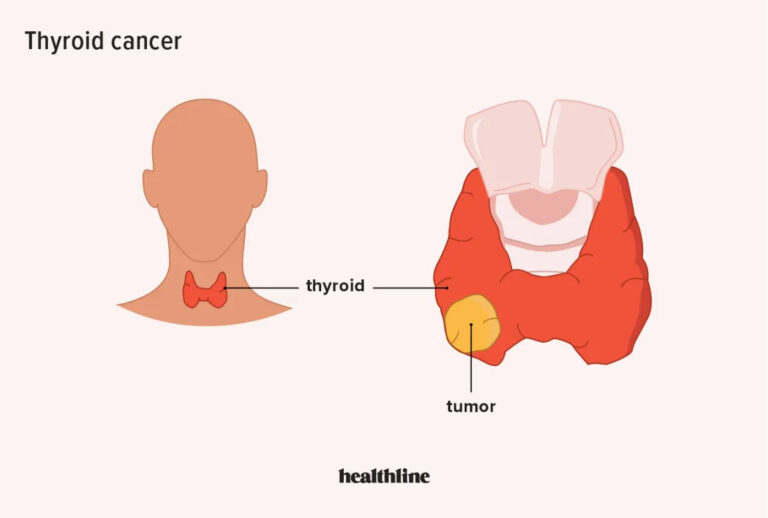Living With Hyperthyroidism: Tips And Advice
Living with hyperthyroidism can be challenging, but with the right knowledge and strategies, you can manage your condition effectively. Hyperthyroidism, a condition characterized by an overactive thyroid gland that produces excessive amounts of thyroid hormones, can affect various bodily functions, leading to a range of symptoms such as rapid heartbeat, weight loss, anxiety, and tremors. Here are some tips and advice to help you navigate life with hyperthyroidism.
Understanding Hyperthyroidism
Before delving into management strategies, it’s important to understand what hyperthyroidism is and how it affects your body. The thyroid gland, located at the base of your neck, plays a crucial role in regulating metabolism, energy production, and overall hormonal balance. When it becomes overactive, it releases too much thyroxine (T4) and triiodothyronine (T3), speeding up your metabolism and leading to the symptoms associated with hyperthyroidism.
Medical Management
Effective management of hyperthyroidism typically involves a combination of medical treatments and lifestyle adjustments. Here are some medical approaches:
- Antithyroid Medications: These drugs, such as methimazole and propylthiouracil, reduce the production of thyroid hormones. Regular blood tests are necessary to monitor thyroid levels and adjust dosages accordingly.
- Beta-Blockers: These medications, like propranolol, help control symptoms such as rapid heart rate and tremors by blocking the effects of thyroid hormones on the cardiovascular system.
- Radioactive Iodine Therapy: This treatment involves taking a radioactive iodine pill that selectively destroys overactive thyroid cells, gradually reducing hormone production. It’s a common and generally safe long-term solution.
- Surgery: In cases where other treatments are ineffective or not suitable, surgical removal of the thyroid gland (thyroidectomy) may be necessary. This approach usually leads to hypothyroidism, which can be managed with thyroid hormone replacement therapy.
Lifestyle Adjustments
In addition to medical treatments, certain lifestyle changes can help manage symptoms and improve your overall well-being.
Diet and Nutrition
While no specific diet can cure hyperthyroidism, certain dietary choices can support your treatment plan and help manage symptoms:
- Balanced Diet: Prioritize eating a diet full of fruits, vegetables, lean meats, and whole grains that are well-balanced. Proper nutrition helps maintain your overall health and supports your body during treatment.
- Calcium and Vitamin D: Hyperthyroidism can lead to bone density loss. Ensure adequate intake of calcium and vitamin D through foods like dairy products, leafy greens, and fortified foods, or consider supplements if recommended by your doctor.
- Avoid Excess Iodine: High iodine levels can exacerbate hyperthyroidism. Until your doctor tells you differently, stay away from iodine-rich foods like seaweed, some seafood, and iodized salt.
- Stay Hydrated: Water consumption is crucial for overall wellness. Drink plenty of water throughout the day to support metabolic functions and prevent dehydration.
Stress Management
Stress can worsen hyperthyroidism symptoms, particularly anxiety and nervousness. Including stress-relieving activities in your daily routine can have a big impact:
- Mindfulness and Meditation: Practices like mindfulness, meditation, and deep breathing exercises can help calm your mind and reduce stress levels.
- Yoga and Tai Chi: These gentle forms of exercise combine physical movement with mental focus, promoting relaxation and reducing stress.
- Adequate Sleep: Aim for seven to nine hours of good sleep every night. Establish a regular sleep routine and create a calming bedtime environment to improve sleep quality.
Exercise
Regular physical activity offers numerous benefits, including improved mood, better cardiovascular health, and enhanced overall fitness. But it’s crucial to pick the appropriate kind and level of exercise:
- Moderate Exercise: Engage in moderate activities like walking, swimming, or cycling. These can help manage weight and improve cardiovascular health without putting excessive strain on your body.
- Strength Training: Incorporate strength training exercises to help maintain muscle mass and support bone health, especially if you’re at risk for osteoporosis due to hyperthyroidism.
- Listen to Your Body: Observe how your body reacts to physical activity. If you feel overly fatigued or experience worsening symptoms, adjust your routine accordingly.
Regular Monitoring and Follow-Up
Consistent monitoring of your thyroid levels and regular follow-up appointments with your healthcare provider are essential components of managing hyperthyroidism:
- Blood Tests: Regular blood tests help monitor thyroid hormone levels and ensure your treatment plan is effective. Your doctor may adjust medication dosages based on these results.
- Symptom Tracking: Keep a journal to track your symptoms, noting any changes or patterns. This information can be valuable for your doctor to tailor your treatment plan.
- Medication Adherence: Take your medications exactly as prescribed. Skipping doses or stopping medication without consulting your doctor can lead to complications and worsening symptoms.
Emotional Support
Living with a chronic condition like hyperthyroidism can take an emotional toll. It’s important to seek support and prioritize your mental well-being:
- Support Groups: Join support groups, either in-person or online, to connect with others who understand what you’re going through. Sharing experiences and advice can provide comfort and encouragement.
- Counseling: Consider seeing a therapist or counselor to help you cope with the emotional challenges of living with hyperthyroidism. Therapy can provide strategies for managing anxiety, stress, and any other emotional concerns.
- Open Communication: Talk openly with your family and friends about your condition and how they can support you. Their understanding and support can make a significant difference in your well-being.
Conclusion
Living with hyperthyroidism requires a comprehensive approach that combines medical treatment with lifestyle adjustments. By following your doctor’s recommendations, maintaining a balanced diet, managing stress, staying physically active, and seeking emotional support, you can effectively manage your condition and lead a healthy, fulfilling life. Remember, each person’s experience with hyperthyroidism is unique, so it’s important to work closely with your healthcare provider to develop a personalized management plan that meets your specific needs.








